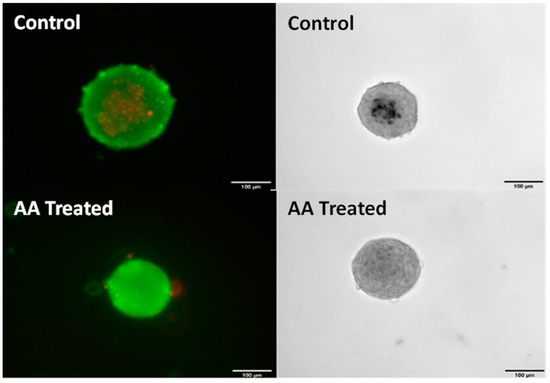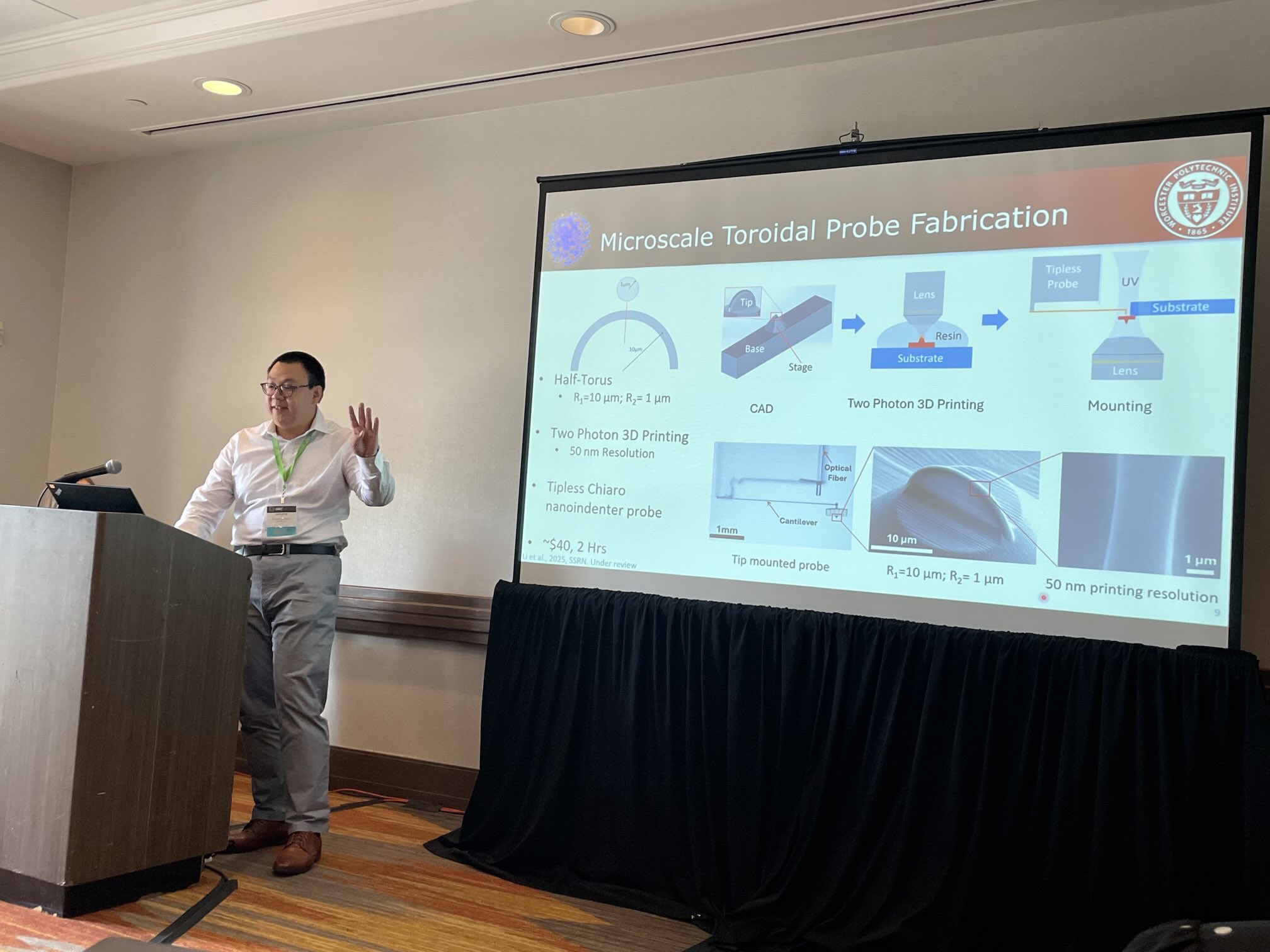The Billiar lab works to understand how mechanical forces affect the cells living in the body’s soft tissues. Soft tissues of the body experience forces during exercise (muscles contract and pull on tendons and ligaments) and at rest (blood vessels stretch with each heartbeat, digestive organs stretch and contract during eating). A better understanding of how a cells “feel” forces, interpret these stimuli, and alter their behavior will aid in creating treatments, and even curing, of a number of diseases from heart valve disease to cancer.
2 minutes introduction by Prof. Kristen Billiar
See what studies we are conducting in our lab!
Juanyong Li and co-authors publish paper probing cell anisotropy with a custom indenter and deep learning
Congrats Juanyong! This is a game-changer for in situ measurement of cell and tissue anisotropy.
Toroidal Indentation for Measuring Cell and Tissue Mechanical Anisotropy. Acta Biomater. 2025 Jul 30:S1742-7061(25)00574-4. doi: 10.1016/j.actbio.2025.07.064.
Article just published on Integration of Co-Curricular Experiential Learning in BME Programs
My colleagues Isgard Hueck, Alexandre Guevel, and Rob MacLeod and I just published an article in J Biomed Engr Education entitled “Integration of Co‑Curricular Experiential Learning in BME Programs to Increase Student Success”. Please check it out – here’s the link to the full sharable article: https://rdcu.be/ets60
Tremendous presentation by Juanyong as a finalist in the PhD competition @SBC2025
Juanyong Li gave a great talk at the ASME Summer Bioengineering conference in Tayama, New Mexico. I love the infusion on humor and fun analogies to donuts and slicing steak. Good luck on the PhD competition!
Congrats to Rozanne Mungai for a great poster presentation @SBC2025
Love to see a busy poster session at the ASME Summer Bioengineering Conference in Tamaya, New Mexico! Well done Rozanne Mungai!
Better way to analyze spheroid cell invasion
Congrats to Rozanne for publishing her imaging and computational method for measuring cell invasion into hydrogels from embedded spheroids in Nature: Scientific Reports.
Mungai, R.W., Hartman, R.J., Jolin, G.E. et al. Towards a more objective and high-throughput spheroid invasion assay quantification method. Sci Rep 14, 31007 (2024). https://doi.org/10.1038/s41598-024-82191-3
Poking Cells: AI can help here too
Congrats to Juanyong for publishing a “new and notable” editorial in the Biophysical Journal about nanoindentation of cells and the power of AI analysis. https://www.cell.com/biophysj/fulltext/S0006-3495(25)00246-2
Nondestructive Mechanical Characterization of Bioengineered Tissues by Digital Holography paper published
Congrats to Colin, Juanyong, and Ziyang for publishing your work on measuring the mechanical properties of Apligraf nondestructively!
Colin Hiscox, Juanyong Li, Ziyang Gao, Dmitry Korkin, Cosme Furlong, Kristen Billiar, “Nondestructive Mechanical Characterization of Bioengineered Tissues by Digital Holography” ACS Biomaterials Science & Engineering (2025) doi:0.1021/acsbiomaterials.4c01503
For those without institutional access thru the DOI above, the first 50 downloads of the article are free here (till 1/15/26, then it’s open access).
Dr. Billiar elected to Biomedical Engineering Society Board of Directors
It is an honor to have been elected as the Secretary of BMES and member of the Board. The Society and its members have provided me with a strong scientific and educational community and wonderful mentorship for my professional growth and leadership skills. I believe the role of a professional society is to provide overall leadership to the field, serve as a unifying voice, and facilitate “grass roots” programs in industry, academia, and local chapters to advance the field. Read more
Prof. Billiar Receives NIH Grant to Build the Next Generation of Biomedical Researchers

The U-RISE@Wπ at WPI started in April 2024 and is supported by a $1,636,820 grant from the National Institutes of Health (NIH), will provide tuition and stipend funding, research opportunities, and academic and personal support to 15 students from populations underrepresented in biomedical research over five years to prepare the students for advanced studies and careers in research. The program is expected to improve the retention and graduation rates of WPI undergraduates from under-represented or disadvantaged backgrounds. Read More
Congrats to Colin, Ashley, Grace, Mahvash, and Rozanne on their recent paper
In their paper in Cells (open access), Coutts et al. show that in a valvular interstitial cell spheroid model of calcific aortic valve disease (CAVD), antioxidants reduce calcification. Ascorbic acid (vitamin C) is especially potent, possibly because it also induces ECM production within the spheoids.




